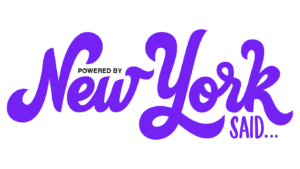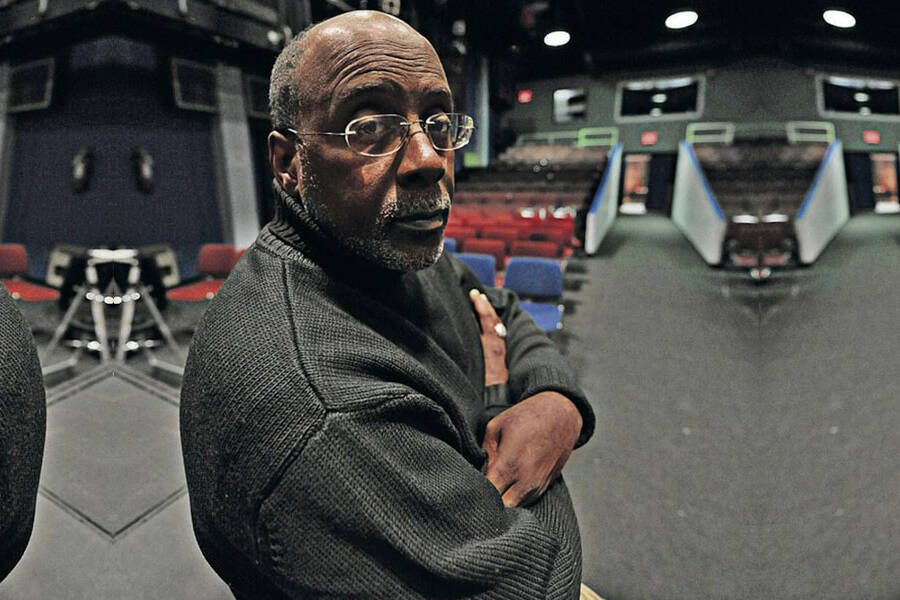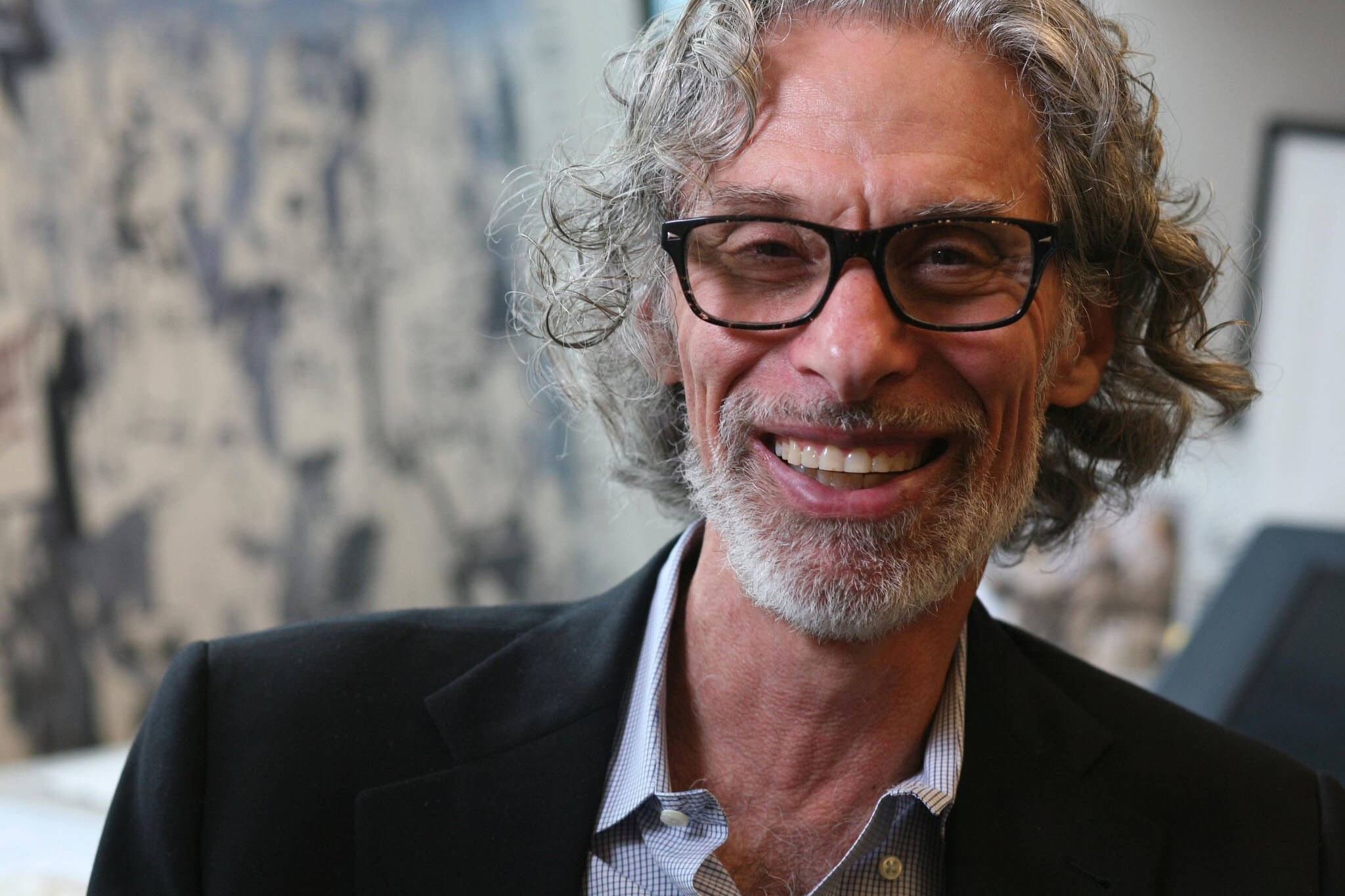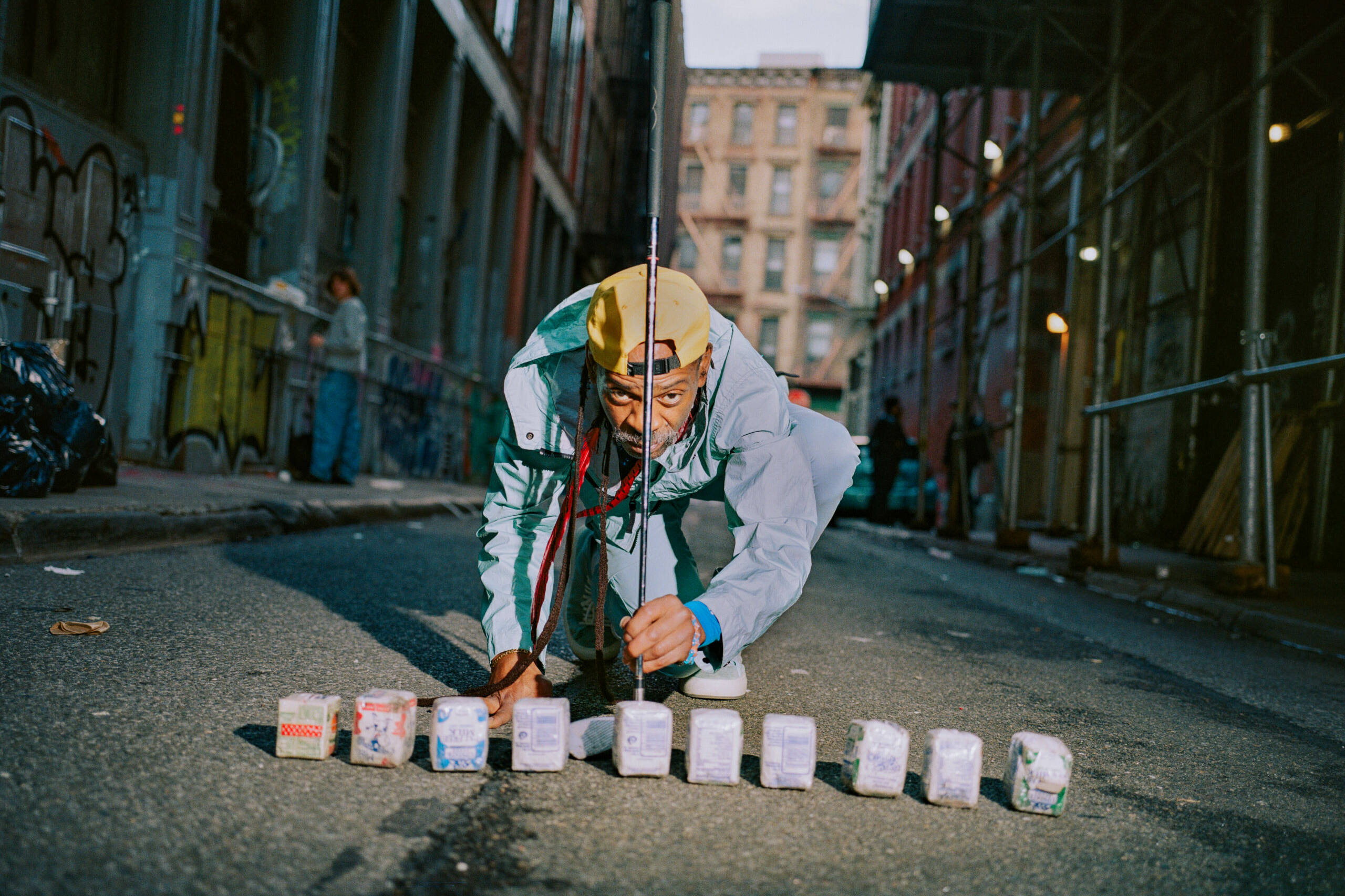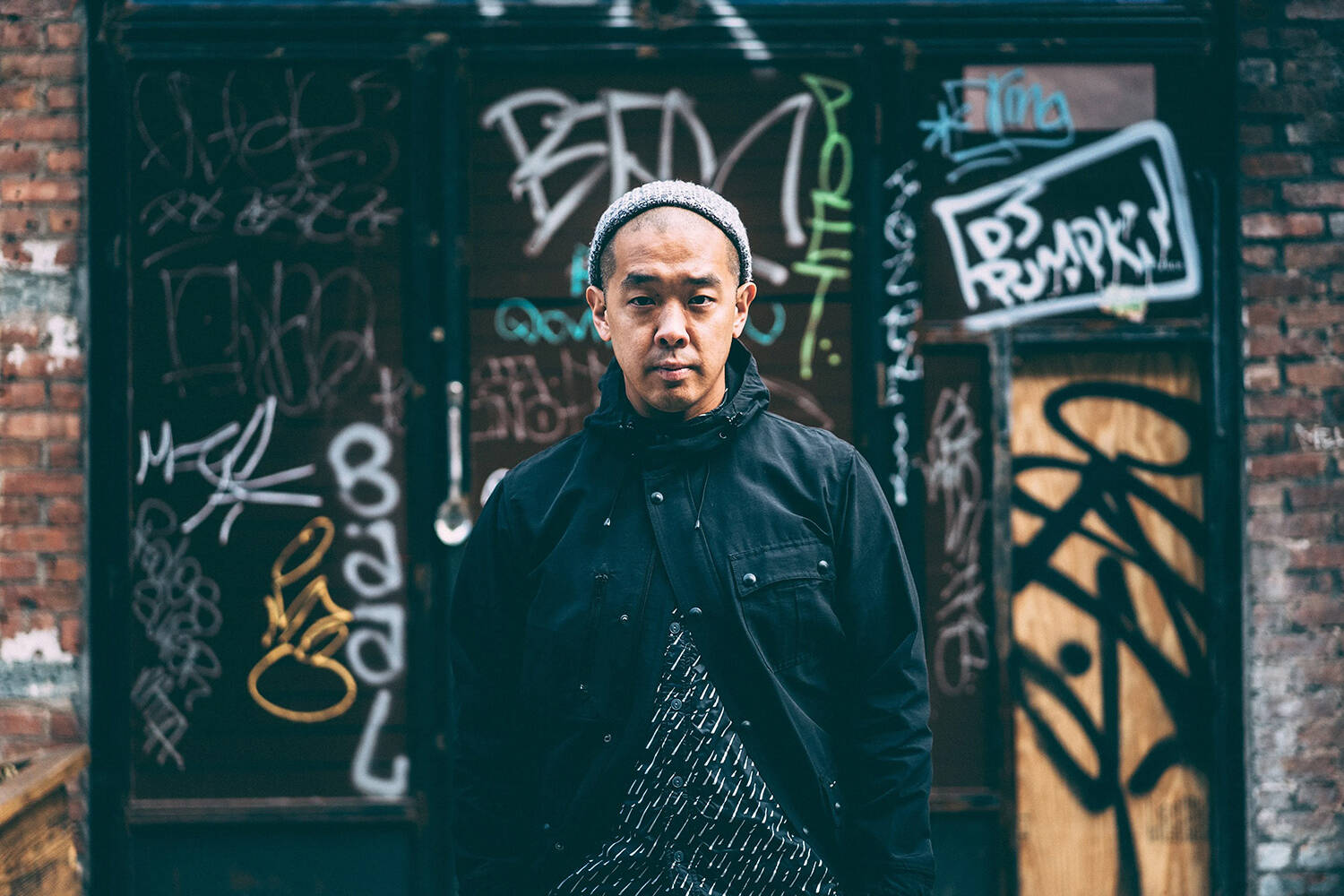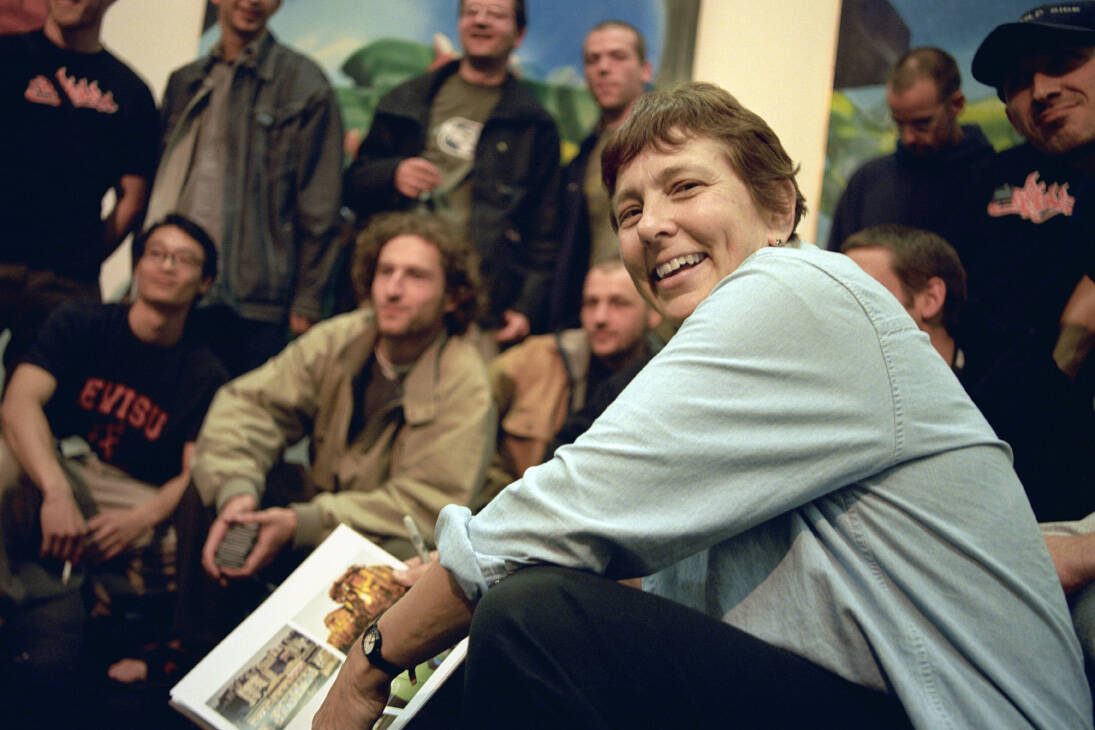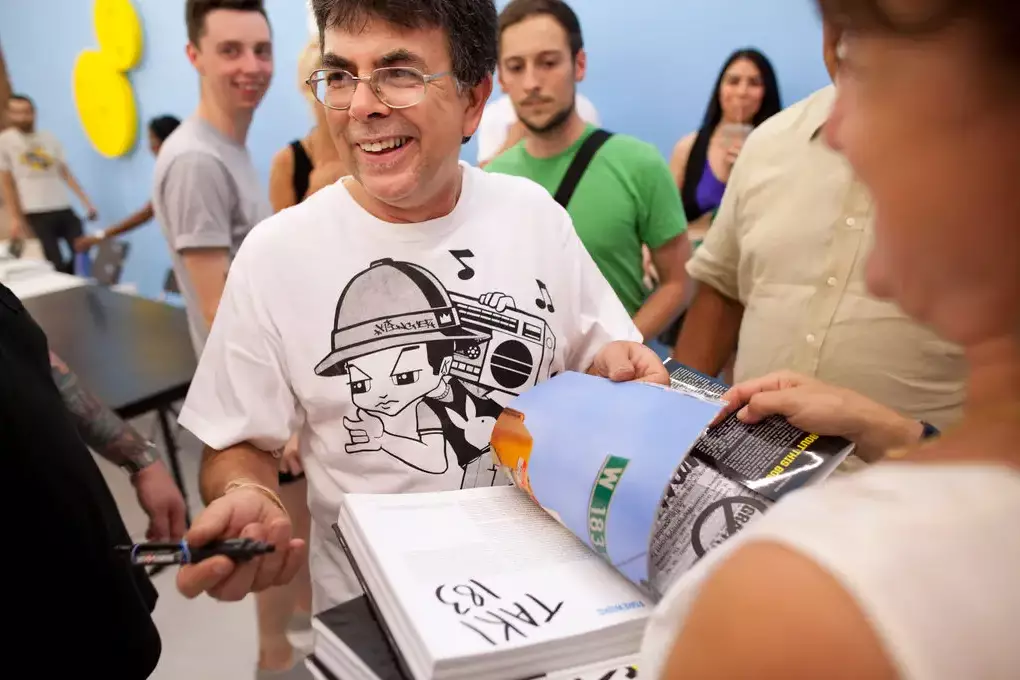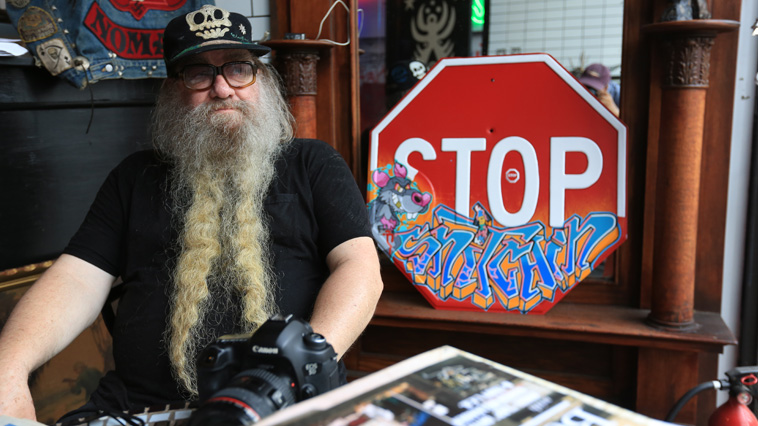
Clayton Patterson, Photographer and Folk Historian
I remember seeing Clayton Patterson on Oprah back in the day. I think it was like ’89. I must’ve been, let’s see, let me do the math on that right quick. I was 11. Did I understand what I was watching? Probably not, but there I was 30-something years later, talking to Clayton in his museum with the big wide window and skull mural on the door, talking and watching the passersby of Essex Street.
Listen to Clayton Patterson tell his Story
Throughout our conversation, Clayton offered many insights that resonated far beyond the gritty streets he documented. The first key takeaway was the artist’s need to adapt. Clayton himself transitioned from painting to embracing various forms of artistic expression. For example, the now-iconic “Clayton Cap,” which I still want and may be even more challenging to get these days, further emphasizes his adaptability to do just that, adapt.
But Clayton’s true passion lies in documenting the people. His “Wall of Fame” stands as a vibrant counterpoint to the usual celebrity portraits. Here, on the LES, the “Little Brother Watching Big Brother” concept takes center stage, a concept Clayton himself popularized well before its time. This act of documenting, often done discreetly thanks to a seemingly insignificant camera, has had a profound impact. Clayton’s work has captured history and led to legal repercussions for police misconduct – a sobering reminder of the power and danger inherent in his chosen path. He likened it to a high-stakes, unpredictable, and tense football game.
The conversation even touched upon the power of radio, a medium that resonates with Clayton’s philosophy of community building.
Ultimately, Clayton’s story reminds us of the importance of documenting our cultural landscape. It’s a call to recognize the contributions of diverse voices, often those on the margins, who shape the narratives that define us. His work serves as an inspiration, urging us to adapt, engage, and document the ever-evolving world around us, just like the “Godfather of the Lower East Side” himself.
This short reflection on my conversation with Clayton Patterson offers a glimpse of his story. However, for the full spectrum experience, try scrolling back up and listening to the entire conversation to unlock the complete story.

